8 Art Therapy Activities for Anxiety
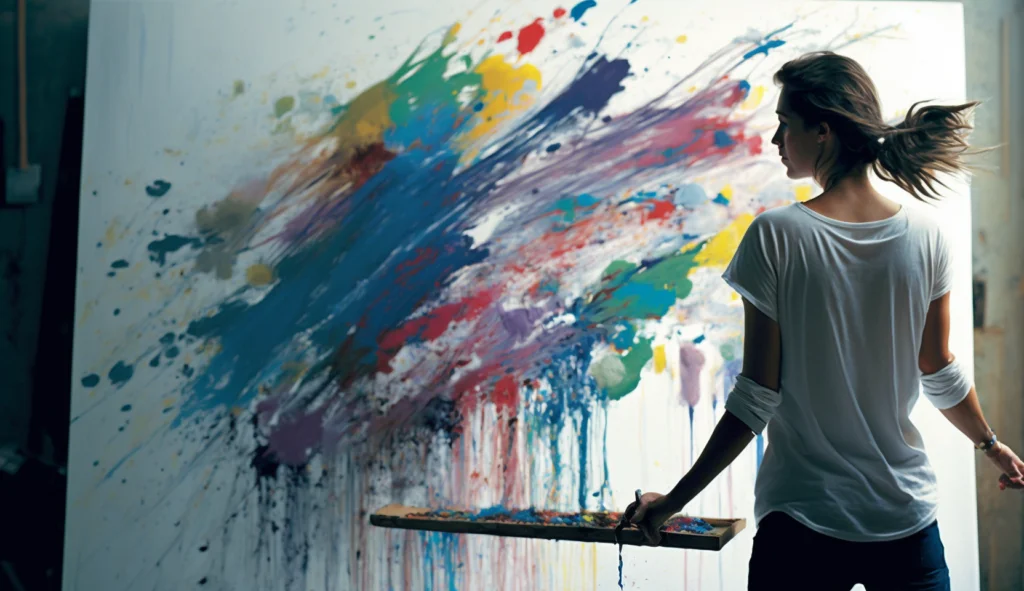
Everyone experiences anxiety at some point in their lives, but for some people, it can be overwhelming and debilitating. Art therapy offers a creative and therapeutic outlet to help individuals manage their anxiety and improve their mental well-being. In this article, we’ll delve into the benefits of art therapy and explore various art therapy activities designed specifically to alleviate anxiety.
Benefits of Art Therapy
Art therapy has numerous benefits for those struggling with anxiety. It provides a safe, non-judgmental space to express emotions and thoughts, helping individuals gain insight into their feelings and experiences. Art therapy can also help increase self-awareness, build self-esteem, and develop healthy coping strategies.
Art Therapy Techniques for Anxiety
There are several art therapy techniques that can be employed to address anxiety. These include:
Drawing
Drawing is a versatile and accessible medium that allows individuals to express their emotions and thoughts in a tangible way. It can help alleviate anxiety by allowing the mind to focus on the task at hand rather than ruminating on anxious thoughts.
Painting
Painting can be a meditative and soothing activity that encourages self-expression and creativity. The act of applying paint to canvas can help reduce anxiety and foster a sense of accomplishment.
Sculpting
Working with clay or other sculpting materials provides a tactile, grounding experience that can be particularly beneficial for those struggling with anxiety. The process of molding and shaping the material can be both calming and empowering.
Collage
Collage allows for the exploration of emotions and experiences through the combination of various materials and images. This technique can help individuals find new ways of expressing their feelings and gain a deeper understanding of their anxiety.
Printmaking
Printmaking offers a unique opportunity for self-expression and experimentation. The repetitive nature of the process can be soothing and help individuals focus on the present moment.
Photography
Photography can be a powerful tool for self-reflection and expression. Capturing images that represent emotions or experiences related to anxiety can help individuals process their feelings and gain new perspectives.
Digital Art
Digital art offers a modern approach to self-expression and creativity. Using digital tools and platforms, individuals can create and share their artwork, helping to alleviate anxiety and build connections with others.
Mixed Media
Mixed media art combines various techniques and materials, allowing for endless possibilities and encouraging individuals to explore new ways of expressing their emotions and experiences.
How to Get Started
To begin your journey with art therapy for anxiety, you’ll need to:
- Gather Supplies: Collect art materials such as pencils, markers, paints, brushes, paper, canvas, or any other supplies that interest you. You don’t need to invest in expensive materials; even basic supplies can be effective for art therapy.
- Find Inspiration: Look for inspiration in your surroundings, emotions, or experiences. You can also search for ideas online or seek guidance from an art therapist.
Art Therapy Activities for Anxiety
Below are some art therapy activities specifically designed to help alleviate anxiety:
Mindful Coloring
Coloring is a simple and meditative activity that can help calm an anxious mind. Engage in mindful coloring by focusing on the process and allowing yourself to be fully present in the moment. There are numerous adult coloring books available, or you can create your own designs.
Zentangle Art
Zentangle is a form of meditative drawing that involves creating intricate patterns and designs. The process of drawing repetitive patterns can be calming and help reduce anxiety levels.
Expressive Painting
Allow yourself to freely express your emotions through painting. Choose colors and techniques that resonate with your feelings and let the paint flow onto the canvas without overthinking or judging the outcome.
Gratitude Collage
Create a collage of images, words, and materials that represent the things you’re grateful for. This activity can help shift your focus from anxious thoughts to positive aspects of your life.
Self-Portrait
Create a self-portrait that reflects how you’re feeling at the moment. This can help you gain a deeper understanding of your emotions and increase self-awareness.
Vision Board
Design a vision board that represents your goals, dreams, and aspirations. This activity can help you focus on the future and foster a sense of hope, reducing anxiety.
Mandala Art
Mandalas are intricate circular designs that are often used for meditation and self-expression. Creating your own mandala can be a calming and centering activity that helps alleviate anxiety.
Nature-Inspired Art
Incorporate elements of nature, such as leaves, flowers, or twigs, into your artwork. Nature-inspired art can help you feel more connected and grounded, reducing feelings of anxiety.
Tips for Success
To make the most of your art therapy experience, consider these tips:
- Be Open-Minded: Embrace the process and allow yourself to explore new techniques and mediums without judgment.
- Don’t Stress Over Perfection: Art therapy is about self-expression and exploration, not creating perfect pieces. Focus on the process, rather than the end result.
- Enjoy the Process: Engage in the art-making process with curiosity and playfulness. Enjoy the experience of creating and let go of any expectations or preconceived notions.
- Seek Support: If you’re unsure about how to begin or would like guidance, consider seeking the help of a professional art therapist.
FAQs
- Do I need any artistic skills to benefit from art therapy? No, art therapy is suitable for individuals of all skill levels. The focus is on self-expression and personal growth, not artistic ability.
- Can children benefit from art therapy for anxiety? Yes, art therapy can be beneficial for children experiencing anxiety. It provides a safe, non-verbal means for them to express their feelings and emotions.
- How often should I engage in art therapy activities to see benefits? The frequency may vary depending on the individual’s needs and preferences. Regular engagement in art therapy activities can help reinforce the benefits and foster ongoing self-exploration and emotional growth.
- Do I need to work with a professional art therapist to benefit from art therapy? While working with a professional art therapist can be helpful, many people can still benefit from engaging in art therapy activities independently. If you feel you need guidance or support, it’s a good idea to seek the assistance of a professional.
- Can I combine art therapy with other forms of therapy or self-help practices? Absolutely! Art therapy can be a valuable addition to other therapeutic practices, such as talk therapy, meditation, or mindfulness. Combining various approaches can help create a well-rounded and holistic approach to managing anxiety.
Conclusion
In conclusion, engaging in art therapy activities can significantly improve mental health and well-being by providing a creative outlet for self-expression and emotional exploration. For those who are passionate about helping others through the power of art therapy, we invite you to consider enrolling in our Art Therapy Practitioner Training Course.
This practitioner training course, accredited by the International Practitioners of Holistic Medicine (IPHM) and the Complementary Medical Association (CMA), offers a comprehensive and accessible online program designed to equip you with the knowledge and skills to effectively support others using art therapy techniques.
By signing up for our Art Therapy Practitioner Training Course, you’ll enjoy:
- Unlimited access to course materials
- Over 687 students already enrolled in the program
- 100% secure payment
- 24/7 customer service
- Internationally recognized certification
In addition, you’ll receive a recognized Art Therapy Practitioner certificate, downloadable PDF summaries, audio modules, lifetime access to course materials, and the opportunity to connect with a community of like-minded individuals through a private group and forum. Plus, we offer a 30-day money-back guarantee, ensuring your satisfaction with the course.
Please note that this course is specifically designed for Art Therapy Practitioner training and is not intended as a full Art Therapist training.
Register today and receive the training course for only $82 USD per month for two months, or a one-time payment of $145 USD, a substantial savings from the original value of $545 USD. Don’t miss this opportunity to advance your skills and embark on a rewarding journey as an Art Therapy Practitioner.

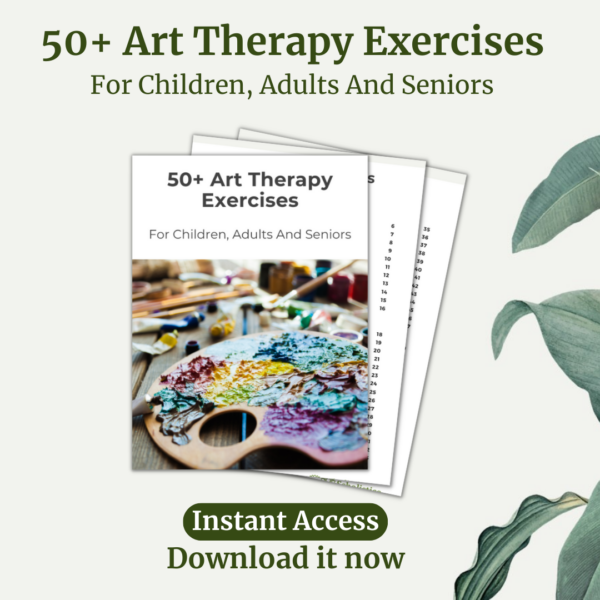
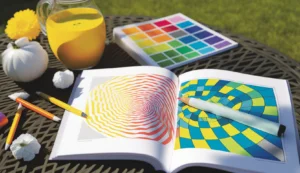
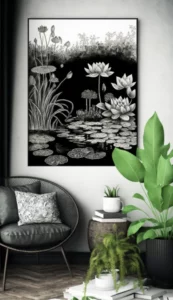
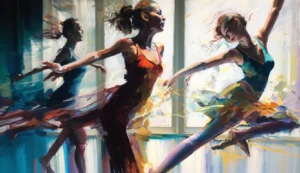
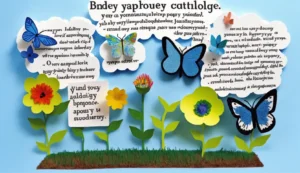
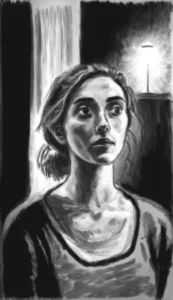
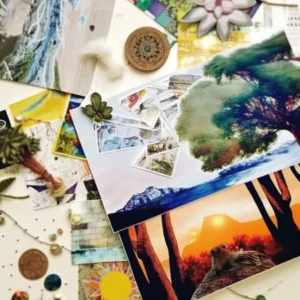
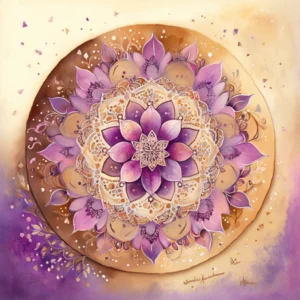
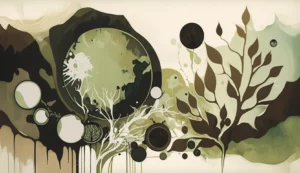
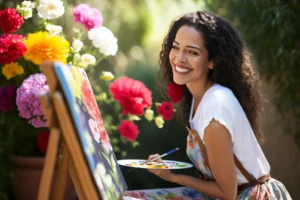
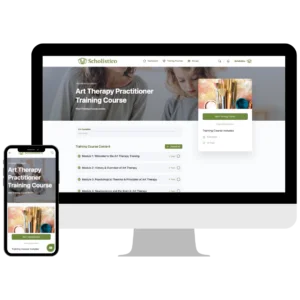
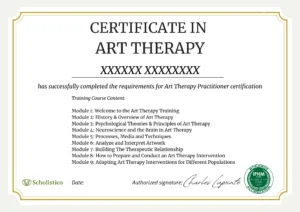
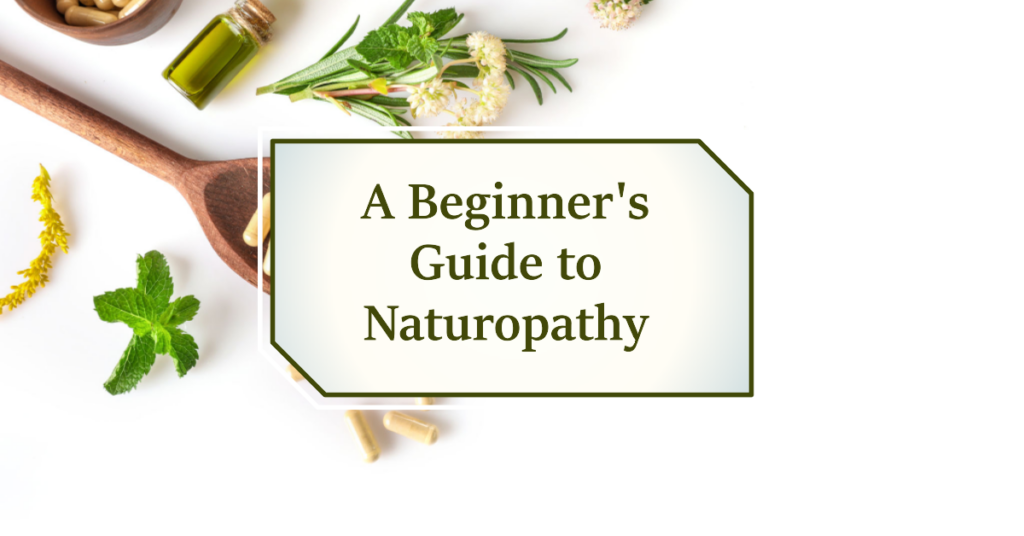
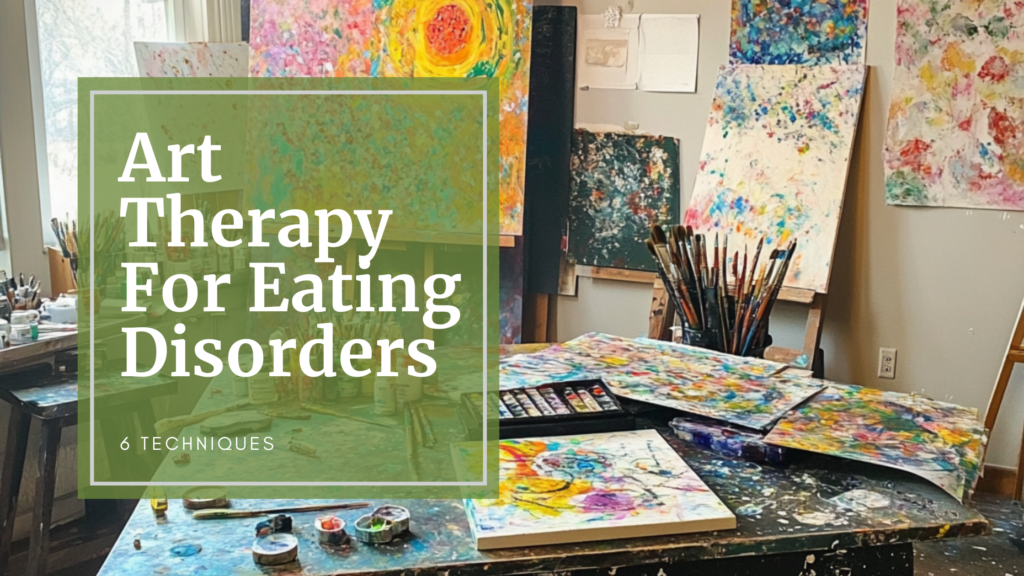
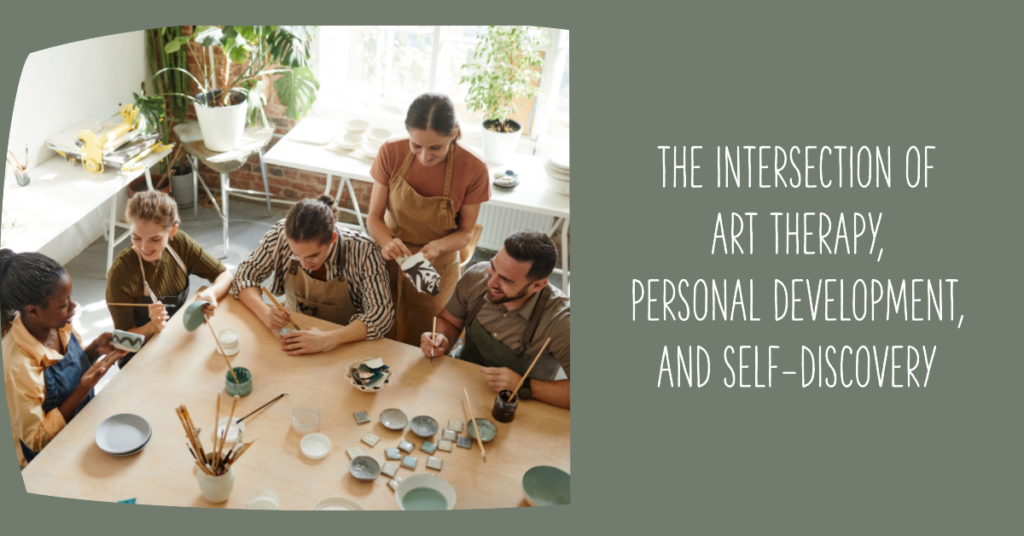
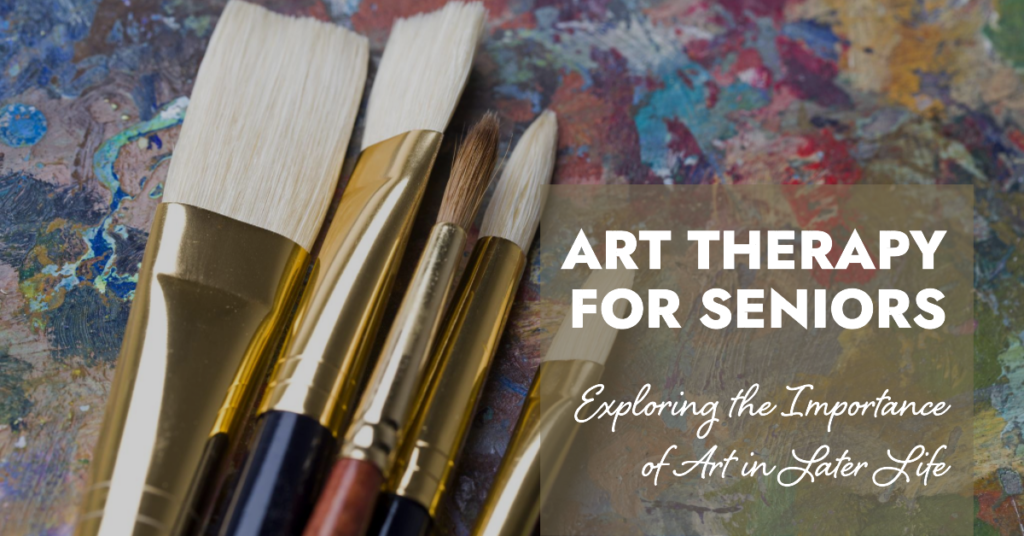
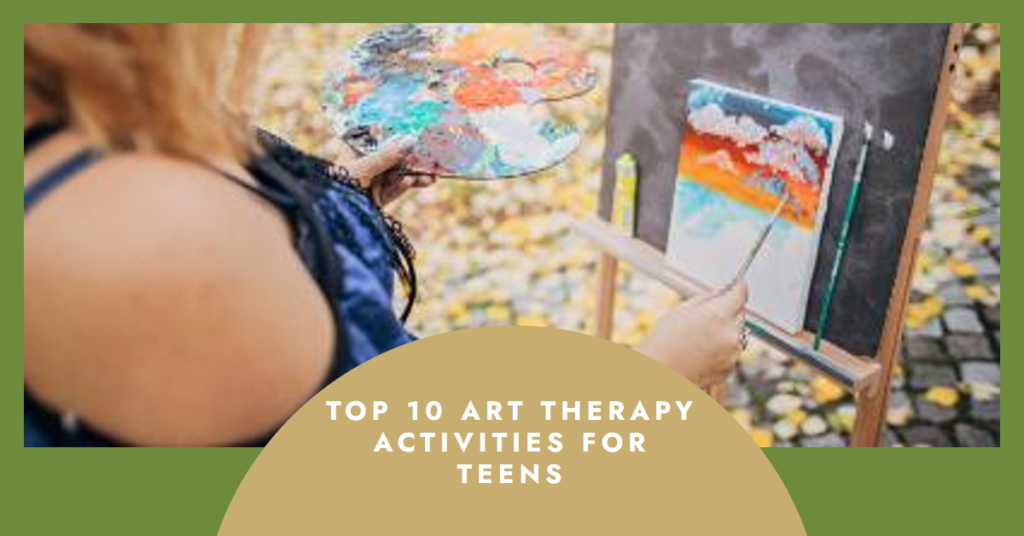


Responses